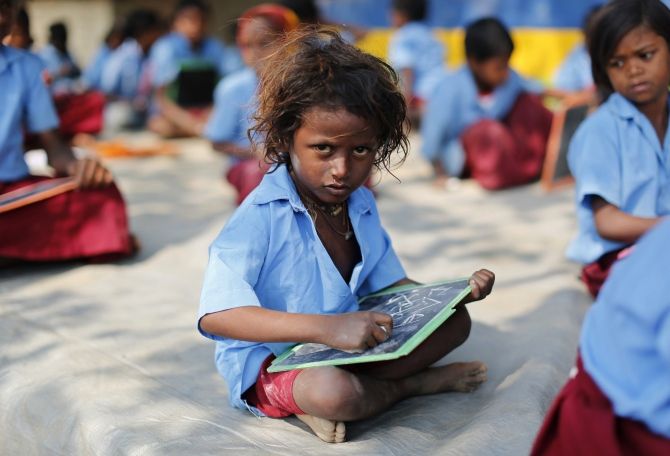Prof Pradip Narayan Ghosh, former vice chancellor of Jadavpur University, Kolkata tells us how the quota system has been unable to make higher education accessible to a large section of society and why it is important to draw up a long term plan to achieve equality by 2022.
 In spite of great expansion in the horizon of higher education in the country since independence a large number of children from the unprivileged sections of the society remain outside the ambit of higher education.
In spite of great expansion in the horizon of higher education in the country since independence a large number of children from the unprivileged sections of the society remain outside the ambit of higher education.
Enactment of the Right to Education law has somewhat improved opportunities of school education in the country.
The government's role in improving the situation for backward castes has been confined to introduction and expansion of quota for entry to institutions and jobs.
But the quota system is now exhausted.
In order to achieve equity we need social reforms and improvement of living conditions with basic needs.
Our society has divisions in many sectors of life.
There are caste divide, rural-urban divide, religious divide, gender divide, economic divide and so on.
Many of these divisions are not present in any other country.
If we consider GER in higher education the figure is much lower for SC/ST/OBC compared to others.
Similarly it is much lower for girls compared to boys, for Muslims compared to the other religions, for rural compared to urban population.
The biggest problem is for economically backward sections irrespective of caste, gender and religion.
Hence no effort concentrating on education scenario alone will be of any use without social reform.
In a fragmented society like ours it is a far cry to think of equity.
Higher education is still not accessible to a large mass of unprivileged sections of the society.
It has been noticed that in spite of the facilities made available to certain backward classes or groups there are not many takers, although the problem persists and a large section remains deprived.
This problem at the higher educational institutes arises because of various reasons:
1. There are not enough students from SC/ ST/ OBC passing the higher secondary level who can compete for these seats.
2. The students of these groups and poorer sections of Muslims and girls cannot afford the educational cost.
3. Their family background prohibits them from pursuing higher education, since the family expects them to make immediate contribution to the resources in the family.
More emphasis is necessary to monitor school-level education to watch the drop-out rates in these sections of students and, if necessary, to provide support to their family so that the capable students can continue education and aspire for higher education.
Since school education is a feeder to higher education an improvement in school education can give a very effective result in a period of 10 to 15 years.
The government’s role in improving the situation for backward castes has been confined to introduction and expansion of quota for entry to institutions and jobs. But the quota system is now exhausted.
In professional courses there are always much smaller number of Muslim students compared to their total population.
In this case separate attention may be given to the school education of Muslim students.
A survey may be conducted to find why only a small section of Muslim students qualify in the different entrance tests.
One reason could be that they cannot afford high cost of private tuition for such courses.
Usually upper caste and higher income group Muslim students do not have much problem, but others are always deprived.
Social and financial help may be necessary for this group.
A long-term plan may be drawn up to attain equity for all groups by 2022.
This has to be drawn sector-wise. We need to draw a roadmap.
Photograph: Ahmad Masood/Reuters










